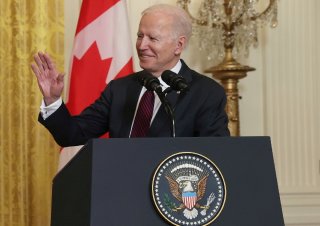Fourth And Maybe Fifth Stimulus Checks (Sent By States)?
California isn’t the only state sending out additional stimulus checks, as Maryland started offering payments of $300 per individual or $500 per family. Nearly 425,000 Marylanders are eligible for the payments under the RELIEF Act, which Gov. Larry Hogan (R) passed in February.
California Gov. Gavin Newsom (D) and state legislators announced a roughly $9.6 billion coronavirus relief bill earlier this year that would give low-income families in the state a bonus stimulus check.
The package includes $600 one-time payments to 5.7 million eligible residents and more than $2 billion in grants for small businesses that still need a financial ledge.
The people eligible for the stimulus check are families that earned less than $30,000 last year and received California’s earned income tax credit for 2020. Also seeing the direct payment are households with individual tax identification numbers and an income below $75,000, households in the CalWORKs program—a program that provides cash aid and services to eligible families with children—recipients of Supplemental Security Income/State Supplementary Payment (SSI/SSP) and recipients of aid through the Cash Assistance Program for Immigrants.
And undocumented immigrant families who did not qualify for federal aid from the previous rescue packages can receive checks of up to $1,200 if they meet the earned income tax credit qualifications.
Newsom approved of the package as Congress was still in negotiations over President Joe Biden’s pandemic legislation, which was approved last month and pumped out $1,400 stimulus checks—which are separate from the California direct payments.
But California isn’t the only state sending out additional stimulus checks, as Maryland started offering payments of $300 per individual or $500 per family. Nearly 425,000 Marylanders are eligible for the payments under the RELIEF Act, which Gov. Larry Hogan (R) passed in February.
The state-level stimulus payments come as Democrats are pushing for a fourth stimulus check to be included in Biden’s multi-trillion-dollar infrastructure and jobs bill, an initiative that has little bipartisan support. Several key Democratic lawmakers, including Sens. Joe Manchin (W.Va.) and Chris Coons (Del.), have advocated for working with Republicans on passing the infrastructure bill, and if members of the GOP are involved in infrastructure negotiations, it’s unlikely that additional direct payments will be included in the final version of the package. Instead, Republicans have argued that the legislation should be targeted toward traditional infrastructure spending.
Although a fourth stimulus check has little bipartisan approval on Capitol Hill, experts have come forward to voice their support for a fourth and even fifth direct payment, contending it would reduce poverty.
“Direct payments to households are broad enough to help most people who need it, filling the holes in other aid programs like unemployment insurance, while flexible enough to allow people to solve their own unique challenge,” the authors of a report for the nonprofit Economic Security Project wrote. “Cash has been the leading force in reducing poverty during one of the deepest recessions in modern history, and is one of the only policies that can narrow persistent imbalances in poverty, income, and wealth between Americans of color and white Americans.”
The authors added that the cash from the direct payments is “one of the best policy interventions available in a crisis” and that additional checks could keep at least 12 million Americans out of poverty.
Since more stimulus checks could likely be a nonstarter on the Hill, other governors may follow Newsom and Hogan’s lead in pumping state-level payments into the pockets of residents. But such calls toward governors haven’t started yet, as Biden’s infrastructure and jobs bill is still in-the-works.
It’s also unclear which states would even pass a fourth stimulus payment, since several of them fell into debt due to the economic impacts of the pandemic, as they tried to keep businesses and families afloat.
Rachel Bucchino is a reporter at the National Interest. Her work has appeared in The Washington Post, U.S. News & World Report and The Hill.

